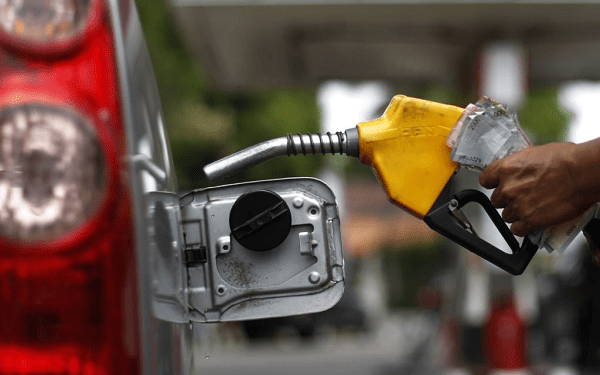Ghana’s Energy Transition Efforts: Fuel Switch and Its Implications [Part 1]
Preamble:
Ensuring Just Energy Transition is one of the key measures to fighting climate change and promoting clean & efficient energy solutions. Countries have therefore taken steps to demonstrate their interest in the transition process through commitments in their respective National Climate Change Policies, and Nationally Determined Contributions (NDCs) among others.
Ghana, in addition to climate-related policies, strategies and plans has developed a National Energy Transition Framework (2022) subsequently leading to the development of the Ghana Energy Transition and Investment Plan (GETIP, 2023). This plan comes with some critical implications, which this paper seeks to highlight with the aim of contributing or informing the decision-making processes. Part 1 of this paper will focus on the historical data/information on Ghana’s crude oil production and usage as well as an underlying controversy.
Background:
In the early 1990s, stand-by thermal power plants mostly relied on diesel until 1998, when crude oil-fired plants started kicking in during the power crises. Since then, crude oil has been the backbone fuel for thermal power plants. Recently, natural gas, Heavy Fuel Oil (HFO), and Distillate Fuel Oil (DFO) fired plants have come online, resulting from the capacity expansion to boost electricity generation. The energy industry sub-category includes electricity generation, refining, manufacture of solid fuels (charcoal) and other sectors (diesel and natural gas consumption at oil fields and Ghana National Gas Company). For electricity generation, it involves the use of Light Crude Oil (LCO), diesel, HFO, and DFO in a thermal power plant to produce electricity for the national grid.
Historically, the Akosombo Hydro dam was the main source of energy generation and supply in Ghana which over time was unable to meet the growing energy need due to population growth and industrial demands. This was a contributing factor to the Government securing power plants, which run on crude oil to increase generation capacity and supply of energy.

Crude Oil Production:
Trend in Crude Oil Production
The table below shows the quantity of crude oil produced in Ghana from 2002 to 2021. Since the production of crude oil in commercial quantities in 2011, it led to (production) increase at an annual growth rate of 8.7% as of the end of 2021. Despite the increase in production, in 2016, 2020, and 2021, production reduced by about 13.8%, 6.3%, and 17.7% from their preceding year’s production. Ghana’s three offshore fields (Saltpond, Jubilee and TEN) produced a total of 55,050 thousand barrels of crude oil in 2021.

Crude Oil Production (thousand barrels)
Source: Petroleum Commission & Ghana National Petroleum Corporation
*TEN (Tweneboa, Enyenra, Ntomme) fields
*OCTP (Offshore Cape Three Points) is a producing conventional gas field located in deepwater in Ghana and is operated by Eni Ghana Exploration and Production
The reduction of the volumes in production from 2020 has been attributed to the impact of the COVID-19 pandemic.
Upon discovering oil in 2007, Ghana started commercial exploration in 2011 having established the necessary governance systems and structure.
With the increasing quantity of natural gas generated from oil exploration over time, it became prudent to rely on natural gas to power the thermal plants.
Underlining Controversy:
There are increasing calls by civil society organisations and other interested parties that countries must IMMEDIATELY and COMPLETELY shut down all fossil fuel plants and leapfrog to renewables or clean energy if we are to attain the 1.5 degrees target and reverse climate impacts. They argue that even though Africa’s emission is very insignificant (just about 4%) the continent must equally stop all fossil production and “leave-the-oil-and-coal-in-the-ground”.
However, there are divergent views. Dr. Steve Manteaw1 posits that it would be unjust to expect all major regions of the world, including Africa which has barely carbonized, and which relies heavily on revenues from hydrocarbons to finance its development, to be constrained to the same de-carbonization timelines. Also, an equal timeline would result in stranded assets for these vulnerable countries, lead to economic decline, and subsequently stagnate development.
The Russia–Ukraine war and its geopolitical and economic ramifications have confirmed the need for countries to approach their transition strategies with caution. Context matters a lot! For Ghana, and other frontier oil producers in the developing world, a ‘just transition’ should therefore situate the national strategy within the country’s energy security imperative, and consider its socio-economic impacts.
Even though hydrocarbon revenues do not dominate Ghana’s national budget (usually between 6% and 12%), the loss of such revenue as a result of the transition could pose substantial fiscal disruption for the country. Additionally, the growing demand for power with population growth, rapid urbanization, and a very ambitious industrialization program (‘One-District-One-Factory’) will leave the country with a huge energy supply gap. Again, oil revenues support 70% of Ghana’s Annual Budget, which goes into four key sectors.
The above scenarios show that halting the use of natural gas immediately will spell economic doom for Ghana and will further impoverish the poor and vulnerable who are benefitting from the current energy supply since there’s no alternative financing to make up for the gap or deficit. Gas as transition fuel will therefore remain important in the country’s energy mix for some time.
Ghana should indeed shift away from fossils to cleaner or renewables but not to the detriment of our national development agenda. Indeed, the European Commission’s endorsement of natural gas as a “transition” fuel triggered serious reactions with climate campaigners describing it as “the biggest greenwashing exercise of all time”. This necessary evil was necessitated by the Russian
Ukraine war, which led to limited gas supply by Russia to interested parties including Europe.
Conclusion:
Even though Ghana is not a major emitter or contributor to climate change, there are deliberate measures set in place to shift from the use of crude oil to natural gas as “transition fuel” towards attaining the energy transition ambitions.
Part 2 of this paper will highlight Ghana’s natural gas production and usage as well as how that has led to emission reduction based on 2021 data.







